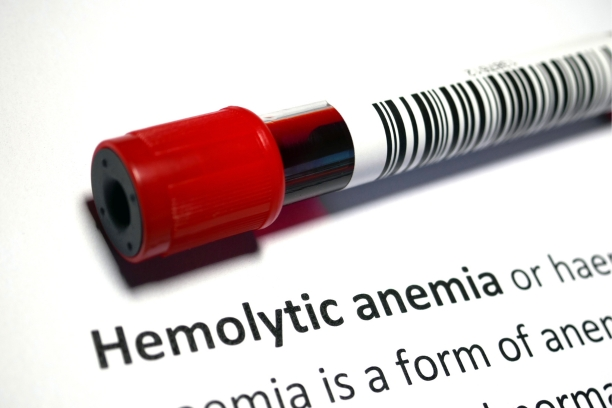The Power of Diet Therapy for Anemia Management
Diet therapy, also known as medical nutrition therapy, is a fundamental component of holistic healthcare aimed at treating and preventing various health conditions through dietary interventions. It involves the strategic use of nutrition to promote healing, manage symptoms, and optimize overall health and well-being. Diet therapy is tailored to individual needs, taking into account factors such as age, gender, medical history, lifestyle, and specific health goals.

1. Nutrient Optimization: Ensuring individuals receive adequate amounts of essential nutrients such as vitamins, minerals, proteins, carbohydrates, fats, and fiber to support optimal bodily functions and prevent nutrient deficiencies.
2. Disease Management: Modifying dietary patterns to address specific health conditions, such as diabetes, hypertension, obesity, heart disease, gastrointestinal disorders, and food allergies, among others. Diet therapy aims to manage symptoms, improve health outcomes, and reduce the risk of complications associated with chronic diseases.
3. Weight Management: Supporting healthy weight management through balanced nutrition, portion control, calorie monitoring, and lifestyle modifications. Diet therapy can help individuals achieve and maintain a healthy weight, reduce body fat, and improve metabolic health.
4. Promoting Digestive Health: Emphasizing the consumption of foods that support digestive health, such as fiber-rich fruits and vegetables, probiotic-rich fermented foods, and hydrating fluids. Diet therapy aims to alleviate symptoms of digestive disorders, promote regular bowel movements, and optimize gut microbiota.
5. Allergy and Intolerance Management: Identifying and eliminating food triggers for individuals with food allergies, intolerances, or sensitivities. Diet therapy involves creating personalized meal plans that exclude allergenic foods while ensuring adequate nutrition and variety.
6. Lifestyle Modification: Incorporating dietary changes as part of a comprehensive lifestyle modification plan to address risk factors for chronic diseases, such as smoking cessation, regular physical activity, stress management, and adequate sleep.
7. Meal Planning and Preparation: Diet therapy often involves developing personalized meal plans tailored to an individual’s nutritional needs, preferences, and lifestyle. This includes creating balanced menus, portion control, and practical tips for meal preparation to ensure consistency and adherence to dietary recommendations.

8. Behavioral Counseling: Incorporating behavioral counseling techniques to support dietary changes and promote long-term adherence. This may involve setting realistic goals, identifying triggers for unhealthy eating habits, addressing emotional eating patterns, and developing strategies for overcoming barriers to dietary change.
9. Monitoring and Evaluation: Regular monitoring and evaluation of dietary habits, nutritional status, and health outcomes are essential components of diet therapy. Healthcare professionals may use tools such as food diaries, nutritional assessments, and biomarker testing to track progress, adjust dietary recommendations, and optimize outcomes over time.
9. Education and Empowerment: Providing education and empowering individuals to make informed choices about their dietary habits and lifestyle behaviors. This includes teaching basic nutrition principles, interpreting food labels, understanding portion sizes, and debunking common nutrition myths to foster self-efficacy and confidence in managing one’s health through diet.
10. Integrative Approach: Integrating diet therapy with other complementary therapies and modalities to enhance overall health and well-being. This may include combining dietary interventions with herbal medicine, acupuncture, physical therapy, and mind-body practices to address the root causes of health conditions and promote holistic healing.
11. Cultural Considerations: Recognizing and respecting cultural, religious, and ethnic dietary practices when developing dietary recommendations. Diet therapy should be culturally sensitive and inclusive, taking into account individual preferences, traditions, and beliefs to ensure dietary changes are sustainable and culturally appropriate.
12. Long-Term Sustainability: Emphasizing the importance of sustainable dietary changes that can be maintained over the long term. Diet therapy aims to promote lasting lifestyle modifications rather than short-term fixes, focusing on gradual progress, flexibility, and enjoyment of nourishing foods for sustained health benefits.
13. Yoga for Mindful Eating: Incorporating yoga principles such as mindfulness and awareness into mealtime practices to cultivate a deeper connection with food and eating habits. Yoga teaches individuals to tune into their body’s hunger and satiety cues, fostering a more intuitive approach to eating and promoting healthier food choices.
14. Yoga for Stress Management: Utilizing yoga techniques such as asana (poses), pranayama (breathwork), and meditation to manage stress-related eating behaviors and emotional triggers. By reducing stress levels, yoga can help individuals make more conscious and balanced food choices, leading to improved digestion and overall well-being.
15. Yoga for Digestive Health: Certain yoga poses are specifically beneficial for supporting digestive health by stimulating abdominal organs, improving circulation, and relieving gastrointestinal discomfort. Poses such as seated twists, gentle forward folds, and supine twists can help alleviate digestive issues and promote optimal nutrient absorption.

16. Yoga for Weight Management: Regular yoga practice can complement dietary interventions for weight management by increasing metabolism, building lean muscle mass, and enhancing overall body awareness. Yoga poses that engage the core, such as plank pose and boat pose, can strengthen the abdominal muscles and support a healthy weight.
17. Yoga for Self-Care and Body Acceptance: Encouraging individuals to use yoga as a tool for self-care and body acceptance, regardless of their current fitness level or body shape. Yoga promotes self-compassion, self-awareness, and a non-judgmental attitude toward one’s body, fostering a positive relationship with food, exercise, and overall health.
Visit Here:- Naturopathic Approach to Cardiovascular Health




